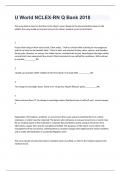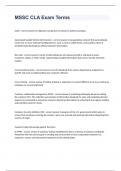Summary
Full Summary - Financial Accounting 1 for Business (Midterm + Endterm)
- Module
- Institution
Struggling with Financial Accounting 1 at UVA? Let my digital handwritten notes be your ultimate guide to success! I aced the course with a stellar 8.5 final grade using these notes, and now I'm here to share this powerful resource with you. From complex ratios to intricate graphs, from fu...
[Show more]





